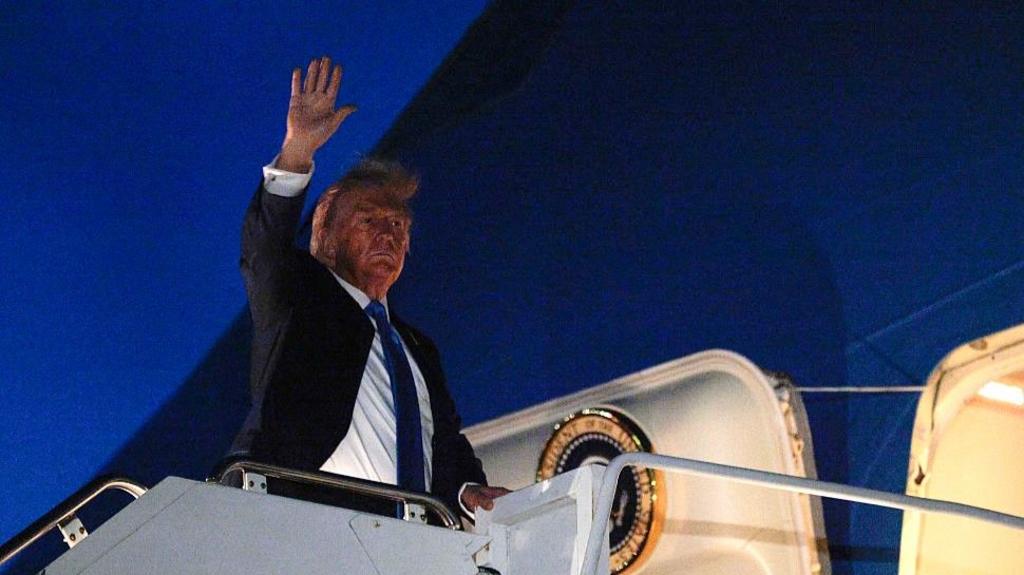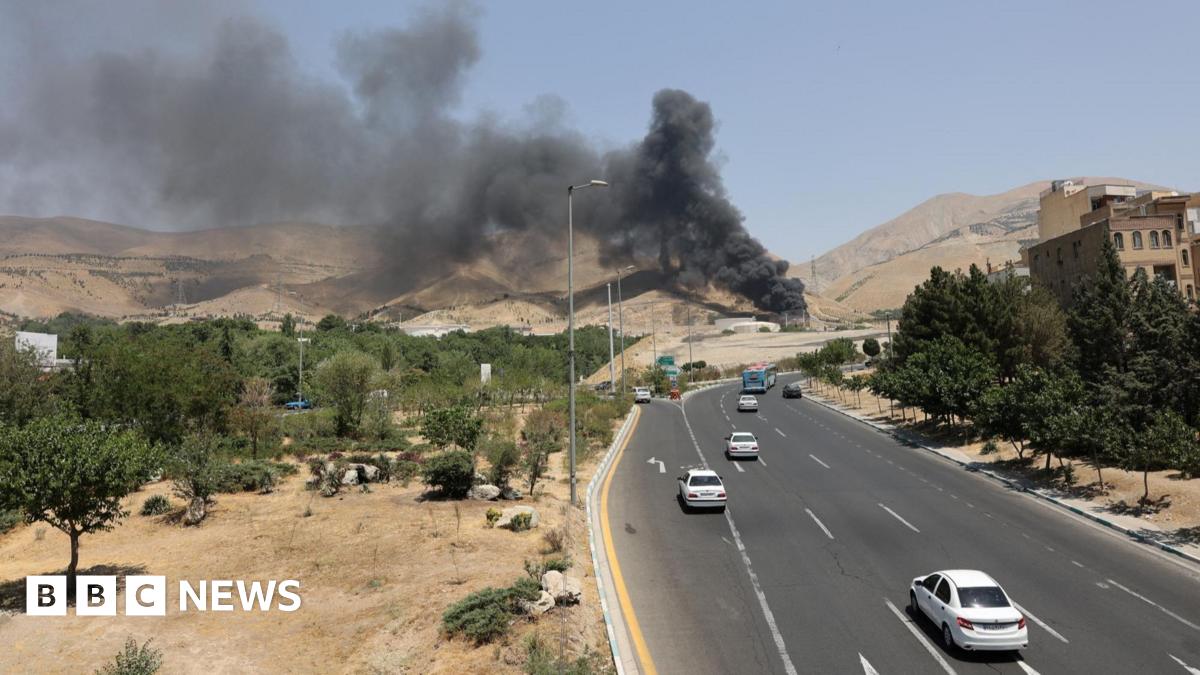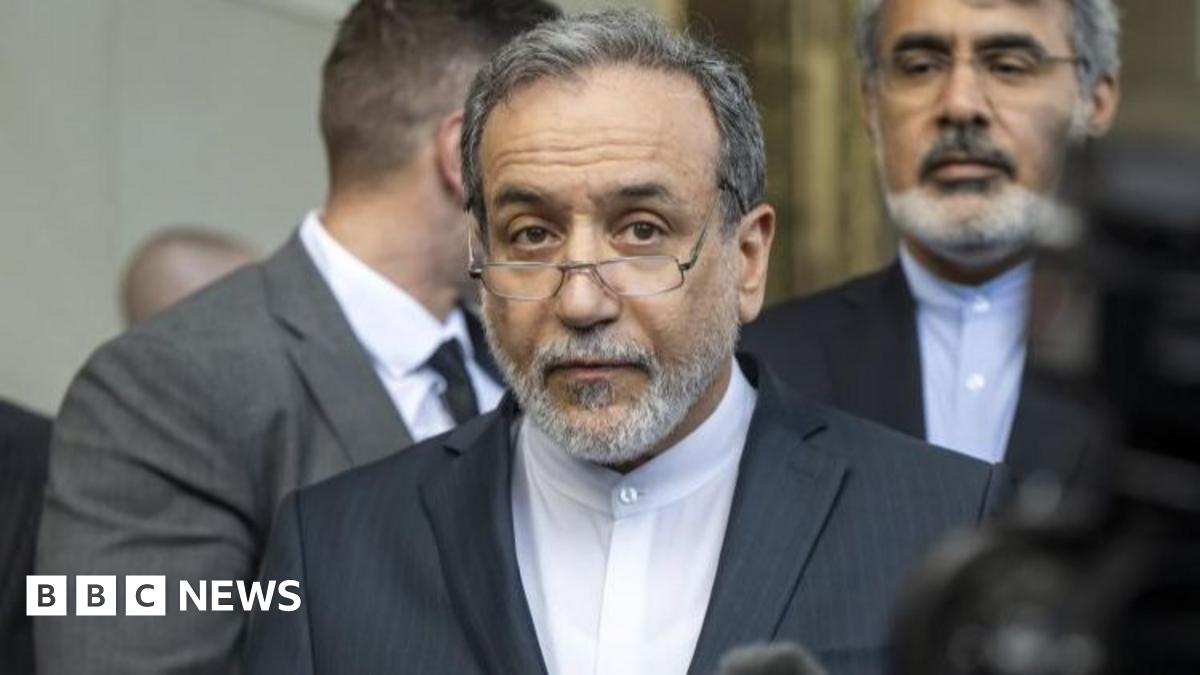Trump's G7 Exit: No Ceasefire Link, Amid Escalating Iran-Israel Conflict

Former U.S. President Donald Trump abruptly left the G7 summit early, dismissing claims that his departure was linked to efforts to broker a ceasefire between Iran and Israel. His exit comes as tensions in the region continue to escalate, with both nations exchanging further strikes. Trump refuted comments from French President Emmanuel Macron suggesting he was returning to the U.S. to work on a truce, adding to the confusion surrounding his sudden departure. He had previously advised Americans in Tehran to evacuate, highlighting the seriousness of the situation.
The G7 summit, intended to address global economic and political challenges, was overshadowed by the rapidly deteriorating situation in the Middle East. Trump's early exit raised questions about the U.S.'s commitment to international diplomacy and its role in de-escalating the conflict. While other world leaders expressed concern and called for restraint, Trump’s remarks and actions have fueled speculation about his intentions and the potential impact on regional stability.
A Rapidly Escalating Conflict
The recent exchange of strikes between Iran and Israel represents a significant escalation of tensions that have been simmering for years. Iran's retaliatory attack, launched in response to an alleged Israeli strike on an Iranian diplomatic facility in Damascus, involved hundreds of drones and missiles. While most were intercepted by Israel and its allies, the attack still caused damage and raised fears of a wider regional war.
Israel's subsequent response, reportedly targeting Iranian military infrastructure, further deepened the crisis. The international community has condemned both actions and urged both sides to exercise restraint and avoid further escalation. The United States has reiterated its support for Israel's security but has also cautioned against actions that could destabilize the region.
Trump's Perspective and Macron's Comments
Trump's decision to leave the G7 summit early was met with surprise and criticism. His assertion that his departure had “nothing to do” with the Iran-Israel conflict seemed to contradict the urgency of the situation. French President Macron, however, suggested a different interpretation, claiming that Trump was returning to the U.S. to work on a truce. Trump quickly dismissed Macron's comments as inaccurate, further complicating the narrative surrounding his departure.
Trump's past policies toward Iran, including the withdrawal of the U.S. from the Iran nuclear deal, have been criticized for exacerbating tensions in the region. His current remarks and actions are being closely scrutinized for any indication of a shift in U.S. policy toward Iran and Israel.
Implications for the Region and the World
The escalating conflict between Iran and Israel poses a serious threat to regional and global stability. A wider war could have devastating consequences, disrupting energy supplies, destabilizing economies, and drawing in other countries. The international community must work urgently to de-escalate the situation and find a peaceful resolution to the conflict.
Trump's early exit from the G7 summit and his subsequent remarks have added to the uncertainty surrounding the crisis. Whether his actions will ultimately contribute to or hinder efforts to resolve the conflict remains to be seen. However, one thing is clear: the situation demands immediate and decisive action from all parties involved.
Key Considerations Moving Forward:
- Continued diplomatic efforts to de-escalate tensions.
- International pressure on both Iran and Israel to exercise restraint.
- Addressing the root causes of the conflict.
- Maintaining open communication channels between all parties.






